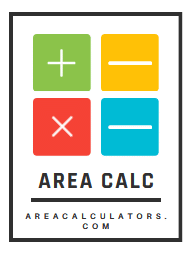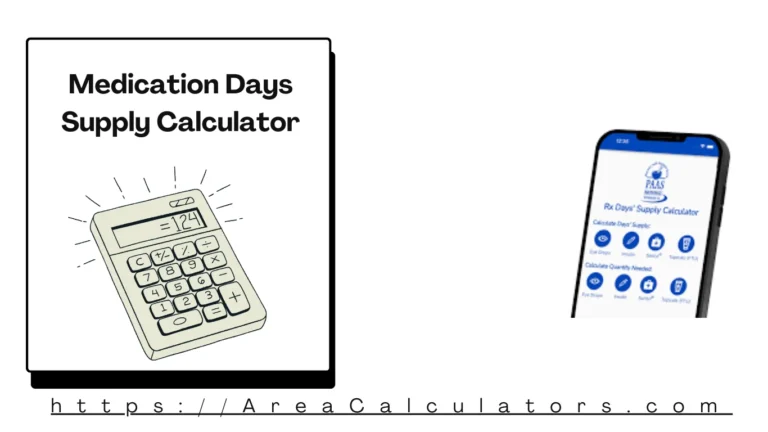Choline is an essential nutrient that doesn’t always get the attention it deserves—but it should. Involved in numerous biological processes, choline plays a pivotal role in brain function, liver health, and cellular structure. Unfortunately, many people fall short of their daily choline needs. That’s where a Choline Calculator comes in. This simple yet powerful tool helps you track, adjust, and optimize your choline intake to stay healthy and energized.
What Is Choline?
Choline is a water-soluble compound that is often grouped with B-complex vitamins. Although your liver can make a small amount of choline, most of it must come from your diet. Choline is required to:
-
Maintain healthy cell membranes
-
Support neurotransmitter production (especially acetylcholine for memory and muscle control)
-
Assist in liver fat metabolism
-
Aid in DNA synthesis and nervous system development
Unlike vitamins like C or D, choline isn’t frequently highlighted—but its importance is just as significant.
Health Benefits of Choline
-
Brain development and memory: Especially critical during fetal development and early childhood.
-
Liver function: Prevents fat accumulation and supports detoxification.
-
Muscle movement: Supports motor function via neurotransmitter signaling.
-
Heart health: Helps convert homocysteine, a compound linked to heart disease.
In short, adequate choline intake supports both short-term energy and long-term health.
Daily Choline Requirements by Age and Gender
Understanding how much choline you need is step one to using the calculator effectively.
Recommended Dietary Allowance (RDA)
| Age Group | Male | Female |
|---|---|---|
| 0–6 months | 125 mg/day | 125 mg/day |
| 7–12 months | 150 mg/day | 150 mg/day |
| 1–3 years | 200 mg/day | 200 mg/day |
| 4–8 years | 250 mg/day | 250 mg/day |
| 9–13 years | 375 mg/day | 375 mg/day |
| 14–18 years | 550 mg/day | 400 mg/day |
| 19+ years | 550 mg/day | 425 mg/day |
Special Needs for Pregnancy, Athletes, and Elderly
-
Pregnant women: 450–480 mg/day
-
Lactating women: 550 mg/day
-
Endurance athletes: May require 10–20% more due to higher metabolic turnover
-
Older adults: Often have reduced liver synthesis, making diet more critical
Choline needs vary based on lifestyle and physiology, which is why personalized tracking is important.
How the Choline Calculator Works
The Choline Calculator takes the guesswork out of nutrient tracking. Instead of researching food labels or calculating manually, it automates the process based on your inputs.
Inputs Required for Personalized Choline Intake
To determine your target choline needs, the calculator typically asks for:
-
Age
-
Sex
-
Activity level
-
Health status (pregnant, breastfeeding, etc.)
-
Optional: Current weight and dietary pattern
It then generates a daily intake target and allows you to log foods to track consumption.
Step-by-Step Instructions
-
Enter your basic info (age, gender, lifestyle)
-
Input your meals or ingredients (e.g., 2 eggs, 1 cup broccoli)
-
The calculator adds choline content for each food
-
See your total vs. target intake
-
Adjust meals as needed to close any gaps
Most tools offer color-coded progress bars and tips on foods to add for balance.
Key Dietary Sources of Choline
Choline is found in both animal and plant foods, though concentrations vary widely.
Animal-Based Choline-Rich Foods
-
Egg yolks: ~147 mg per large egg
-
Beef liver: ~350 mg per 3 oz
-
Chicken breast: ~70 mg per 3 oz
-
Salmon: ~56 mg per 3 oz
-
Milk: ~43 mg per cup
Animal products generally offer the most concentrated choline sources, making them key in high-protein diets.
Plant-Based Sources and Fortified Options
-
Soybeans: ~107 mg per half-cup
-
Broccoli: ~63 mg per cup cooked
-
Quinoa: ~43 mg per cup cooked
-
Brussels sprouts: ~63 mg per cup
-
Sunflower seeds: ~55 mg per ounce
Vegans and vegetarians may need to be especially diligent with their intake or consider supplementation if necessary.
Choline Deficiency: Symptoms and Risks
Common Signs of Low Choline Intake
-
Brain fog or poor memory
-
Fatigue and low energy
-
Muscle aches or cramping
-
Poor concentration
-
Digestive issues
Though not immediately life-threatening, these signs suggest that your body isn't getting what it needs.
Long-Term Effects and Who’s Most at Risk
-
Fatty liver disease
-
Muscle damage
-
Developmental issues in infants
-
Heart disease risk (via elevated homocysteine)
Groups most at risk:
-
Pregnant women
-
Older adults
-
People following strict low-fat or plant-based diets
-
High-performing athletes
Examples of Choline Intake Calculations
Example 1: Sedentary Adult Female
Profile:
-
Age: 30
-
Weight: 135 lbs
-
Not pregnant, sedentary
Target: 425 mg/day
Daily Plan:
-
2 eggs = 294 mg
-
1 cup cooked broccoli = 63 mg
-
1 cup milk = 43 mg
-
1 tbsp peanut butter = 15 mg
Total = 415 mg
Minor adjustments (like adding sunflower seeds) can close the gap.
Example 2: Active Male Athlete
Profile:
-
Age: 28
-
Weight: 180 lbs
-
Highly active
Target: ~600 mg/day
Daily Plan:
-
3 eggs = 441 mg
-
3 oz salmon = 56 mg
-
1 cup quinoa = 43 mg
-
½ cup edamame = 50 mg
Total = 590 mg
Here, the calculator confirms near-ideal intake with minimal adjustment.
Applications of the Choline Calculator
For Dietitians and Nutrition Coaches
-
Use it for detailed client assessments
-
Tailor meal plans around nutrient gaps
-
Track compliance over time
Great for meal prep plans, food journals, or clinical nutrition sessions.
For Health-Conscious Individuals and Families
-
Simplify grocery shopping and meal prep
-
Track children’s or elderly parents’ intake
-
Reduce risks of hidden deficiencies
User-friendly interfaces make it ideal for non-professionals too.
Manual Choline Tracking vs. Calculator-Based Approach
Limitations of Food Label Analysis
-
Many foods don’t list choline on nutrition panels
-
Manual tracking is tedious and error-prone
-
Ingredient variations (e.g., cooking methods) alter choline content
These limitations make spreadsheets and paper logs unreliable.
Advantages of Using a Choline Calculator
-
Accurate, fast, and science-backed
-
Suggests food swaps and recipe tweaks
-
Offers visual feedback (e.g., progress bars, alerts)
-
Syncs with health goals like brain performance or hormone balance
It takes nutrition from abstract to actionable.
Features to Look For in a Choline Calculator
Age-Based Recommendations, Tracking, and Reminders
-
Auto-adjusts choline needs as you age or change status (e.g., pregnancy)
-
Sends reminders to log intake or drink water
-
Offers weekly summaries and goal setting
Meal Integration and Nutrient Highlighting
-
Allows full meal input, not just isolated foods
-
Highlights other essential nutrients like B12, iron, and folate
-
Suggests optimal food pairings for absorption and synergy
This holistic approach turns it into a full nutrition companion.
FAQs:
Q1: Can I use the calculator for children or elderly adults?
Yes, as long as the tool allows age-specific input, it will adjust accordingly.
Q2: What happens if I go over the choline RDA?
Going slightly over is safe, but long-term excessive intake (over 3,500 mg/day) may cause side effects.
Q3: Is choline more important for pregnant women?
Absolutely. It’s critical for fetal brain and spinal cord development.
Q4: Are supplements necessary if I eat eggs daily?
Not usually. One or two eggs daily can meet most people’s needs unless they have higher metabolic demands.
Q5: Do vegans need to supplement choline?
Often, yes. Plant sources are lower, and it’s hard to hit the RDA through food alone on a strict vegan diet.
Q6: Is this calculator suitable for weight loss planning?
Yes. It integrates well with caloric tracking and ensures you meet essential nutrient needs during a deficit.
Conclusion:
With its powerful role in brain health, liver function, and cell structure, choline is a nutrient you can't afford to overlook. The Choline Calculator gives you the tools to measure, manage, and optimize your intake without guesswork or stress.
Whether you're managing a family’s nutrition, coaching athletes, or enhancing your personal diet, this calculator ensures you stay on track with a nutrient that drives performance, clarity, and well-being. Start tracking your choline today—because a well-fed mind and body are the foundation of lifelong health.


